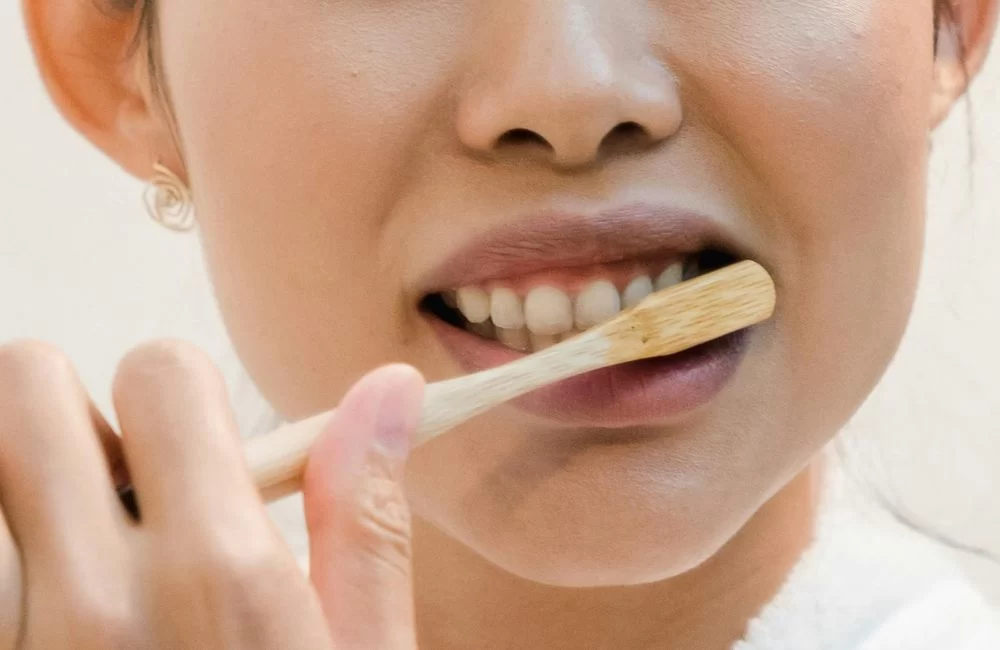
Healthy Oral Habits to Reduce Tooth Sensitivity: Effective Tips & Solutions
- What is Tooth Sensitivity?
- Common Causes of Tooth Sensitivity
- Healthy Oral Habits to Prevent Sensitivity
- Solutions to Manage and Reduce Tooth Sensitivity
- Real-Life Examples of Overcoming Sensitivity
What is Tooth Sensitivity?
Tooth sensitivity, also known as dentin hypersensitivity, is a common dental condition that causes discomfort or pain when teeth are exposed to certain stimuli like cold, hot, sweet, or acidic foods. It can affect one or more teeth and may range from mild to severe. Individuals with sensitive teeth often find it difficult to enjoy hot drinks, ice cream, or even brushing their teeth.
The condition occurs when the protective enamel on your teeth wears down, exposing the underlying layer, known as dentin, which contains microscopic tubes connected to nerve endings. When these tubes are exposed to external stimuli, they trigger pain signals that lead to sensitivity.
Common Causes of Tooth Sensitivity
Several factors contribute to tooth sensitivity. Understanding these causes is crucial for finding ways to reduce discomfort and prevent further damage to your teeth. Some common causes include:
- Enamel Erosion: The gradual loss of enamel due to acidic foods, drinks, or aggressive brushing can lead to tooth sensitivity.
- Gum Recession: When gums recede, they expose the roots of your teeth, which are more sensitive than the crown.
- Teeth Grinding: Bruxism, or grinding your teeth, can wear down enamel and lead to tooth sensitivity.
- Dental Procedures: Recent dental treatments like fillings, crowns, or whitening can temporarily cause heightened tooth sensitivity.
Healthy Oral Habits to Prevent Sensitivity
One of the most effective ways to manage tooth sensitivity is by adopting healthy oral habits. These habits not only help prevent sensitivity but also contribute to overall oral health. Here are some key practices to consider:
- Use a Soft-Bristled Toothbrush: Brushing with a hard-bristled brush can wear down enamel and irritate gums. Switch to a soft-bristled toothbrush to protect your teeth.
- Brush Gently: Avoid brushing your teeth too hard. Use gentle, circular motions to prevent damage to the enamel.
- Choose the Right Toothpaste: Use toothpaste designed for sensitive teeth. These products contain compounds that help block the sensation of pain.
- Floss Regularly: Flossing is essential to remove plaque and food particles that could contribute to gum disease, which can exacerbate tooth sensitivity.
- Limit Acidic Foods and Drinks: Avoid consuming highly acidic foods and drinks like citrus, soda, and wine. If you do indulge, rinse your mouth with water afterward.
- Stay Hydrated: Drinking plenty of water throughout the day helps keep your mouth hydrated and promotes overall oral health.
Solutions to Manage and Reduce Tooth Sensitivity
In addition to healthy oral habits, there are several solutions available to manage tooth sensitivity. These solutions can help soothe discomfort and strengthen your teeth:
- Desensitizing Toothpaste: Special toothpastes for sensitive teeth contain potassium nitrate or fluoride to block pain signals and reinforce tooth enamel.
- Fluoride Treatments: Fluoride gels or treatments can be applied by your dentist to help strengthen enamel and reduce sensitivity.
- Dental Sealants: A dentist can apply a protective coating to the surfaces of your teeth to shield them from sensitivity triggers.
- Professional Treatments: For severe cases, dental procedures like bonding, crowns, or gum grafts may be needed to cover exposed tooth roots and alleviate sensitivity.
Real-Life Examples of Overcoming Sensitivity
Many individuals have successfully managed their tooth sensitivity by incorporating simple habits into their daily routine. For example:
Sarah, a 32-year-old woman, struggled with tooth sensitivity for years. After switching to a soft-bristled toothbrush and using toothpaste specifically for sensitive teeth, she noticed a significant reduction in discomfort. She also started avoiding acidic foods and drinks and made sure to brush gently twice a day. Today, Sarah can enjoy her morning coffee without the usual pain!
John, a 45-year-old man, was constantly bothered by sensitivity, especially after dental cleanings. After speaking to his dentist, he began using fluoride treatments at home and adopted a routine that included gentle brushing and flossing. Over time, his sensitivity improved dramatically, and he no longer experiences discomfort with everyday activities like eating or drinking.
By maintaining healthy oral habits and exploring various sensitivity solutions, you can significantly reduce tooth sensitivity and enjoy your favorite foods and drinks again without discomfort. Remember, consistency is key when it comes to oral care!
If you're struggling with sensitive teeth, it's time to take action. Learn more about products designed to reduce tooth sensitivity, such as specialized toothpastes and fluoride treatments. Click here to explore our range of dental care products and find the best solution for you.







 Westgate Dental Arts
Westgate Dental Arts Coventry Family Dental
Coventry Family Dental Familia Dental
Familia Dental Dr. Daniel S. Fife, DDS
Dr. Daniel S. Fife, DDS Dentistry At Suburban Square: Michael I. Wollock, DMD
Dentistry At Suburban Square: Michael I. Wollock, DMD Comfort Care Dental
Comfort Care Dental The Importance of Oral Health Education During Pregnancy for a Healthy Pregnancy
The Importance of Oral Health Education During Pregnancy for a Healthy Pregnancy Why Skipping Dental Checkups Can Lead to Bigger Oral Health Problems
Why Skipping Dental Checkups Can Lead to Bigger Oral Health Problems Best Tips for Brushing Your Teeth Properly for Healthy Gums: Essential Techniques for Oral Health
Best Tips for Brushing Your Teeth Properly for Healthy Gums: Essential Techniques for Oral Health Advantages of Porcelain Dental Restorations
Advantages of Porcelain Dental Restorations How Can Diabetes Cause Tooth and Gum Problems? Preventing and Managing Oral Health Issues
How Can Diabetes Cause Tooth and Gum Problems? Preventing and Managing Oral Health Issues Healthy Habits for Promoting Good Oral Health and Hygiene: Tips for a Healthy Smile
Healthy Habits for Promoting Good Oral Health and Hygiene: Tips for a Healthy Smile